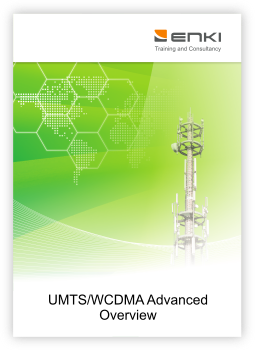ELP 0606 ★★★
The course presents an overview on the architecture, functionality and services of UMTS. The focus is put on the new, characteristic features of UMTS/WCDMA differentiating the system from GSM. The course provides a detailed survey through WCDMA air interface including spreading operation, fast power control, soft handover, rake receiver as well as some aspects of radio network planning. It describes the UMTS Terrestrial Radio Access Network as well as the Core Network elements and functions. A brief introduction to protocols and procedures in UMTS is given. The course provides the participants with the overview on UMTS service concepts as well as presents some major security issues in UMTS.
The course is based on the 3GPP Technical Specifications and hence is vendor-independent.
Target audience – Who should attend and benefit
The course is addressed to network engineers and consultants who will work with UMTS system, as well as any technical staff requiring deeper appreciation of UMTS.
Prerequisites – What you are supposed to know prior to the course
Ability to understand technical subjects. Technical background in mobile telecommunications is required.
Course content – What you will learn
- UMTS system introduction
- Migration from GSM to UMTS
- UMTS as a 3G mobile system
- 3G standardization
- IMT-2000
- Spectrum allocation
- System architecture
- Introduction
- Radio Access Network
- Core Network
- User Equipment
- External networks
- Network geographical structure
- Identity numbers
- Introduction to WCDMA
- Radio access methods
- Spectrum spreading
- WCDMA air interface
- Channelization and scrambling
- Modulation
- Bandwidth on demand
- Power control
- Handover
- Multipath radio channels and RAKE receiver
- WCDMA channel concept
- WCDMA physical layer procedures
- Data processing in WCDMA transmitter
- Source coding
- Channel coding
- Error detection coding (CRC attachment)
- Transport block concatenation and code block segmentation
- Error correction coding
- Radio frame size equalization
- Interleaving
- Introduction to radio network planning
- Introduction
- Radio network dimensioning
- Planning requirements
- Link budget
- Capacity
- Capacity limitations
- Capacity improvements
- Coverage
- GSM co-planning
- GSM and WCDMA coverage comparison
- Planning tools
- Network optimization
- UTRAN
- Introduction
- UTRAN logical architecture
- UTRAN interfaces
- UTRAN functions
- Synchronization
- Implementation issues
- UTRAN improvements
- Core Network
- Introduction
- CN nodes, interfaces and their functions
- CN evolution
- CN transmission
- Introduction to protocols and procedures
- Protocol reference architecture
- Security
- Security features in UMTS
- 3G Security threats
- UTRAN security
- CN security
- User domain security
- Security of services and applications
- Lawful interception
- UMTS versus GSM security model
- Services
- Introduction
- UMTS service categories
- UMTS service architecture
- Quality of Service (QoS) in UMTS
Duration – How long it takes
5 days which is equivalent to 30 hours of lecture.

